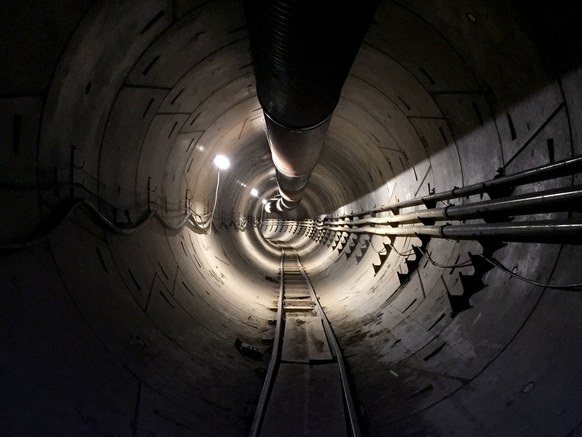
Breaking News
 2 Hours of Retro Sci-Fi Christmas Songs | Atomic-Age Christmas at a Snowy Ski Resort
2 Hours of Retro Sci-Fi Christmas Songs | Atomic-Age Christmas at a Snowy Ski Resort
 Alternative Ways to Buy Farmland
Alternative Ways to Buy Farmland
 LED lights are DEVASTATING our bodies, here's why | Redacted w Clayton Morris
LED lights are DEVASTATING our bodies, here's why | Redacted w Clayton Morris
Top Tech News
 Travel gadget promises to dry and iron your clothes – totally hands-free
Travel gadget promises to dry and iron your clothes – totally hands-free
 Perfect Aircrete, Kitchen Ingredients.
Perfect Aircrete, Kitchen Ingredients.
 Futuristic pixel-raising display lets you feel what's onscreen
Futuristic pixel-raising display lets you feel what's onscreen
 Cutting-Edge Facility Generates Pure Water and Hydrogen Fuel from Seawater for Mere Pennies
Cutting-Edge Facility Generates Pure Water and Hydrogen Fuel from Seawater for Mere Pennies
 This tiny dev board is packed with features for ambitious makers
This tiny dev board is packed with features for ambitious makers
 Scientists Discover Gel to Regrow Tooth Enamel
Scientists Discover Gel to Regrow Tooth Enamel
 Vitamin C and Dandelion Root Killing Cancer Cells -- as Former CDC Director Calls for COVID-19...
Vitamin C and Dandelion Root Killing Cancer Cells -- as Former CDC Director Calls for COVID-19...
 Galactic Brain: US firm plans space-based data centers, power grid to challenge China
Galactic Brain: US firm plans space-based data centers, power grid to challenge China
 A microbial cleanup for glyphosate just earned a patent. Here's why that matters
A microbial cleanup for glyphosate just earned a patent. Here's why that matters
 Japan Breaks Internet Speed Record with 5 Million Times Faster Data Transfer
Japan Breaks Internet Speed Record with 5 Million Times Faster Data Transfer
ELON MUSK WANTS TO DIG ANOTHER TUNNEL UNDER LA

THE BORING COMPANY sure sounds sexy. It's founded and funded by Elon Musk, the guy who makes electric cars (Tesla) and sends rockets into space (SpaceX). It has come up with a new—albeit unproven—concept for dismantling traffic. It wants to build underground creations that you, mere human, can ride at speeds up to to 150 mph, without ever encountering a speck of traffic. But before it sinks its machines into the ground and tunnels to victory, the Boring Company has to do something truly monumental: get past local government.
On Monday evening, Boring Company operations chief Jehn Balajadia stood before the city council of LA County's Culver City, and spent 45 minutes explaining why Musk wants and deserves the right to dig a tunnel under their homes. The sometimes chippy meeting was packed with members of the public, and highlighted both the exciting and not quite consistent elements of the transportation company's plans.
Balajadia said the Boring Company is done with its tech development phase, and is ready to carve out a "proof of process" tunnel that would run 6.5 miles between the city of Los Angeles and Culver City, its neighbor to the west. Part of the goal here is to test the company's ability to build across jurisdictions and handle all the hurdles that entails. She said the company has already asked LA for an excavation permit, and is working with Caltrans, the state transportation agency, to secure the right of way beneath public roads. But the local leadership isn't entirely convinced.
Musk came up with the Boring Company in late 2016 while stuck in LA traffic. He could destroy the scourge of congestion, he figured, by building layers upon layers of underground tunnels, each just wide enough for a personal car or a multi-passenger pod. Those vehicles would ride on electric skates that would zoom everyone along at triple-digit speeds. And, he insisted, he could do it far more cheaply and at least four times faster than typical tunneling tech—a claim he hasn't proven, and which tunneling engineers doubt. Longer tunnels between cities, Musk added, could contain the hyperloop, his idea for a levitating train that works in a near-vacuum tube.
By early last year, Musk had purchased a used tunnel boring machine and began building a test trench under SpaceX headquarters in Hawthorne, in LA County. By August, the Boring Company had secured the city of Hawthorne's permission to build a 2-mile test tunnel beneath the city streets. Now, it plans to bid for a Chicago project to build high-speed rail between downtown and O'Hare International Airport, and says it's in talks to construct a hyperloop between Washington, DC, and Baltimore, Maryland, which will eventually stretch to New York.
This latest interaction with local government comes a month after Musk faced intense Twitter backlash for his comments about the unpleasantries of riding public transit. And the Culver City presentation seemed pitched to ameliorate potential concerns. Balajadia focused on the "Loop," the small pods meant to transport multiple passengers, rather than the individual Teslas highlighted in the Boring Company's first promotional video. She said the Boring Company's system would complement the Los Angeles County Metropolitan Transportation Authority's expanding public transportation network, and that it would not ask for any taxpayer funding. And she said the cost of a ride in a Boring Company pod would be "comparable, if not lower, than than any existing public transportation." (An LA Metro bus ride costs $1.75.)

 $100 SILVER CONFIRMED?
$100 SILVER CONFIRMED?

